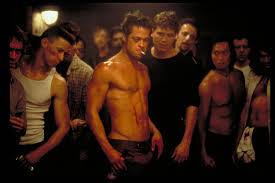Minimalism: More Freedom, Less Crap – Material and Otherwise
Minimalism is a tool that can assist you in finding freedom. Freedom from fear. Freedom from worry. Freedom from overwhelm. Freedom from guilt. Freedom from depression. Freedom from the trappings of the consumer culture we’ve built our lives around… Minimalists search for happiness not through things, but through life itself.
— The Minimalists, Joshua Fields Millburn and Ryan Nicodemus
In a medical office waiting room, I stumbled across a reference to a book that piqued my interest, Everything That Remains, a memoir by two Dayton, Ohio young men with working class upbringings and early adulthood, ladder-climbing, wealth-accumulating ambitions, about their gravitation from the timeworn path toward an illusory standard of The American Dream to something more introspective and streamlined called Minimalism.
I found it at the library and read it. You might think the rest of this essay will be a screed about the evils and vacuousness of materialism and consumerism, and the beauty and simplicity of deprivation and Idealism, and a door-to-door-Bible-salesman-like proselytization aimed at convincing you to chuck the former’s wanderings through a vast commercial wasteland in favor of a holier life spent in the latter’s pure Garden of Eden. Breathe a sigh of relief; it won’t be.
The book did put a name to the broad ideas about how I’d prefer to live, though. And I believe I’m largely putting those ideas into practice.
When people hear the term “Minimalism” applied to a lifestyle, it does seem to conjure the image of someone just barely better off than Fed Ex plane crash survivor Tom Hanks’ character stranded on an uninhabited island in Castaway, fashioning shoes from palm fronds, feverishly twirling a stick on a rock to start a fire, and squeezing meager marine nourishment out of a shellfish speared with a homespun, sharpened bamboo pole. They think Minimalism means living a Spartan, monk-like, stripped-down existence: doing without, possessing no things, having no fun, staring at four bare walls from a lonely chair, living in a quixotic commune, scraping by on the minimum, spending no money – hell, making no money! It doesn’t.
What Minimalism means to me, as The Minimalists describe it, is eliminating the clutter from my life – figuratively and literally – so that all I have left and all that I focus my attention and physical, mental and emotional energy upon are things that add value and meaning to my life. The Minimalists love the book/movie Fight Club, about an underground, subversive group of men breaking free from the soul-numbing shackles imposed by societal, cultural and corporate expectations, citing this quote from Fight Club’s charismatic leader Tyler Durden: “The things you own end up owning you.”
from my life – figuratively and literally – so that all I have left and all that I focus my attention and physical, mental and emotional energy upon are things that add value and meaning to my life. The Minimalists love the book/movie Fight Club, about an underground, subversive group of men breaking free from the soul-numbing shackles imposed by societal, cultural and corporate expectations, citing this quote from Fight Club’s charismatic leader Tyler Durden: “The things you own end up owning you.”
Eliminating oppressive, useless clutter that bogs you down applies to relationships, careers, meaningless pursuits and time-consuming obligations – real or imagined – as well as physical objects. That’s the freedom to which The Minimalists refer.
Minimalism is about breaking free from corporate and cultural influences that tell you who you should be, how you should act, what you should believe and how you should define success. It’s about the freedom to define your own path toward happiness and fulfillment, regardless of the disapproval and negativity you may receive from friends, family, colleagues and acquaintances. It’s about the freedom to take risks, the freedom to make choices, the freedom to make mistakes and fail, and the freedom to take full responsibility for all of that in service of living a more courageous, authentic, satisfying and inspiring life.
It so happens that my recent movement toward Minimalism – a transition to a new career in mental health counseling from public relations, a move to a smaller area with a simpler lifestyle – has coincided with a more Spartan lifestyle, more out of necessity than by design. I have moved from a 3-bedroom, 4-bathroom townhouse to a 1-bed, 1-bath apartment. I am earning a salary that is less than half of my last full-time job salary, the result of the career change and starting on a bottom rung in a region with lower wages. I am not “livin’ large” – I’m driving a 15-year-old economy car; watching the smallest-possible, decade-old flat-screen TV, donated to me by a friend, on a no-frills cable TV package; and sleeping on a real bed only after weeks on a constantly-deflating air mattress, because I had no bed to take on my move – but I’m livin’ free and livin’ well.
I have no debt, save for my mortgage, the house I moved from but still own, and which still adds value to my life. I feel a greater sense of meaning and purpose in my new career than my former, so much so that retirement holds no allure for me at age 54, which I consider a good thing. I am pursuing activities and relationships that enhance my life.
I am a proponent of Minimalism, not because I want to latch on to the latest fad or lifestyle trend that may be featured on the Today show or in chic lifestyle magazines, but because my re-evaluation of the course of my life during the reflective midlife phase was pointing me in the direction of Minimalism before I realized the philosophy had been assigned a pithy label. I am striving to be a Minimalist – not impoverished, deprived, lonely, isolated, rigid, overly austere, Utopian, cultist, weird, eccentric, anti-social, anti-consumerist, or anti-technologist (think Unabomber) – but free to embrace and fully pursue the things I value.
This quote from Minimalism’s emblematic movie, Fight Club, captures the undercurrent stimulating the Ohio natives’ cum Montana entrepreneurs’ lifestyle movement:
Man, I see in Fight Club the strongest and smartest men who’ve ever lived. I see all this potential, and I see squandering. Goddammit, an entire generation pumping gas, waiting tables—slaves with white collars. Advertising has us chasing cars and clothes, working jobs we hate so we can buy shit we don’t need. We’re the middle children of history, man: No purpose or place. We have no Great War. No Great Depression. Our Great War’s a spiritual war; our Great Depression is our lives. We’ve all been raised on television to believe that one day we’d all be millionaires, and movie gods, and rock stars. But we won’t. And we’re slowly learning that fact. And we’re very, very pissed off.

 that one can control their child’s fate, bail out the child at every turn, and feel eternally responsible for the child’s life choices and outcomes.
that one can control their child’s fate, bail out the child at every turn, and feel eternally responsible for the child’s life choices and outcomes.